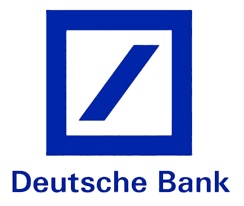Deutsche Bank Q3 2024 $DBK (-0.02%)

Financial performance:
Deutsche Bank reported Group revenues of EUR 7.5 billion in Q3 2024, an increase of 5% compared to the same quarter last year. Net profit amounted to EUR 1.7 billion, up 39% year-on-year, driven by a partial release of the provision for litigation related to the Postbank acquisition. Pre-tax profit amounted to 2.3 billion euros, an increase of 31% compared to the previous year. Adjusted costs were held at EUR 5 billion for the third consecutive quarter and are in line with the 2024 guidelines.
Balance sheet analysis:
The CET1 ratio was 13.8%, indicating strong organic capital generation. Risk-weighted assets amounted to 34 billion euros, including 13 billion euros from operational risks. The leverage ratio remained stable at 4.6%. The liquidity ratio amounted to 135%, above the target of around 130%, which indicates strong liquidity.
Profit and loss account:
Revenues were driven by a strong performance in Investment Banking, with revenues up 11% year-on-year, particularly in Fixed Income & Currencies (FIC) and Origination & Advisory (O&A). Corporate Bank revenues remained stable year-on-year as growth in commissions and fees offset the normalization of deposit margins. Private Bank revenues remained essentially unchanged, with higher income from investment products offset by lower interest income.
Cash flow analysis:
Operating cash flow was supported by strong revenue and cost discipline. The Bank continued to invest in technology and business growth while maintaining a focus on cost efficiency. Investments in capital expenditure and strategic investments were aligned with the Bank's growth initiatives, particularly in the corporate and investment banks.
Key figures and profitability:
The after-tax return on tangible equity (RoTE) amounted to 10.2 % in the third quarter of 2024, compared to 7 % in the same period of the previous year. The cost/income ratio improved from 73% to 69% year-on-year, excluding the Postbank legal disputes. The bank's profitability ratios indicate a strong operating performance and effective cost management.
Segment analysis:
Investment Banking was the standout performer, with revenue up 11% year-on-year, driven by strong credit trading and emerging market revenues. The Corporate Bank maintained stable revenues as growth in fee income offset the normalization of margins. The Private Bank had to contend with higher financing costs, which had a negative impact on interest income, but was able to grow income from investment products.
Competitive analysis:
Deutsche Bank's strategic investments in its core businesses, particularly in investment banking, have strengthened its market position. The bank's focus on capital-light business and technology investments supports its competitiveness. However, the challenging economic environment in Germany and geopolitical risks pose potential challenges.
Forecasts and management comments:
Management is confident of achieving the revenue forecast of EUR 30 billion for 2024 and EUR 32 billion for 2025. The Bank's strategic focus on cost efficiency and revenue growth through its Global Hausbank strategy is expected to drive future performance. Management emphasized the importance of a strong capital position and liquidity.
Risks and opportunities:
The main risks include macroeconomic challenges in Germany, geopolitical tensions and regulatory changes. Opportunities lie in the Bank's strategic investments in technology and capital-light business, which are expected to drive growth. The Bank's strong capital position and liquidity provide a buffer against potential risks.
Summary and strategic implications:
Deutsche Bank demonstrates financial stability and growth opportunities, supported by strategic investments and effective cost management. The bank's focus on capital-light businesses and technology investments positions it well for future growth. Nevertheless, macroeconomic and geopolitical risks remain key challenges. Overall, the bank is on track to achieve its financial targets for 2025, with a clear focus on increasing shareholder value. Still not a case for me. The bank has recurring problems, constantly makes mistakes and is simply not worth enough for its size. What's more, it's simply not in heaven in Europe and Germany. Nevertheless, it is on the watch list.
Positive statements:
- Deutsche Bank's liquidity ratios remain strong, with a liquidity coverage ratio of 135%, which is above the target of around 130%.
- The corporate bank was able to increase the number of orders won from multinational clients by 18% compared to the first nine months of the previous year.
- In Asset Management, assets under management grew by 67 billion euros to 963 billion euros to date, supported by strong inflows into various product lines.
- The Investment Bank's revenues in the third quarter were up 11% year-on-year, driven by improvements in Fixed Income & Currencies (FIC) and Origination & Advisory (O&A).
- Deutsche Bank's CET1 ratio of 13.8% reflects strong organic capital generation and positions the bank well for planned capital distributions.
Negative statements:
- The decline in net interest income (NII) was due to continued high funding costs due to minimum reserves and a negative episodic effect from the loan books.
- Loan loss provisions amounted to EUR 494 million in the quarter, compared to EUR 245 million in the same quarter last year, mainly due to Privatbank.
- The German economy is expected to grow by only 0.2% in 2024, with stagnation very likely, impacting Deutsche Bank's domestic market.
- The application of the EU carve-out had a negative impact on the CET1 capital ratio of around 68 basis points as at September 30, 2024.
- Stage 3 loan loss provisions increased quarter-on-quarter to EUR 482 million, mainly driven by Privatbank, including the transitional effects of the Postbank integration.


